Congress is currently negotiating an increase in the “debt ceiling,” which must be raised to prevent catastrophic economic consequences.
Previously Congress has always acted when called upon to raise the debt limit. Since 1960, Congress has acted 78 separate times to permanently raise, temporarily extend, or revise the definition of the debt limit – 49 times under Republican presidents and 29 times under Democratic presidents. Congressional leaders in both parties have recognized that this is necessary.
But now, Republican lawmakers are seeking to hold critical public programs–and the U.S. economy–hostage by trying to extract painful cuts in exchange for raising the debt ceiling. This would have hugely harmful impacts on West Virginians who rely on Medicaid, SNAP, TANF, and other programs.
Take action today to urge our U.S. Senators to pass a clean debt ceiling increase without cuts to critical programs. You can send them a message here.
Learn more about what’s at stake in this recent piece from our colleagues at the Center on Budget and Policy Priorities.
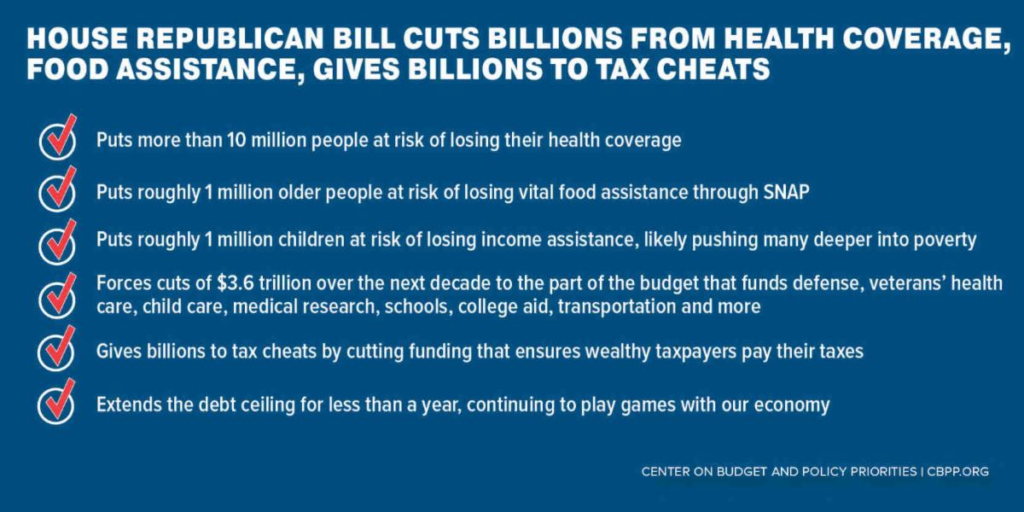
As a result of previous tax cuts and resulting austerity measures, funding for public services in West Virginia has declined over the last decade.
Since 2012, state higher education funding is down by 26 percent, adjusting for inflation. This has had real-life consequences for students, families, and the communities where colleges and universities are often the largest employer.
Income tax cuts passed in 2023 could exacerbate the underfunding of West Virginia’s colleges and universities, increasing tuition for students even further and costing our communities good jobs.
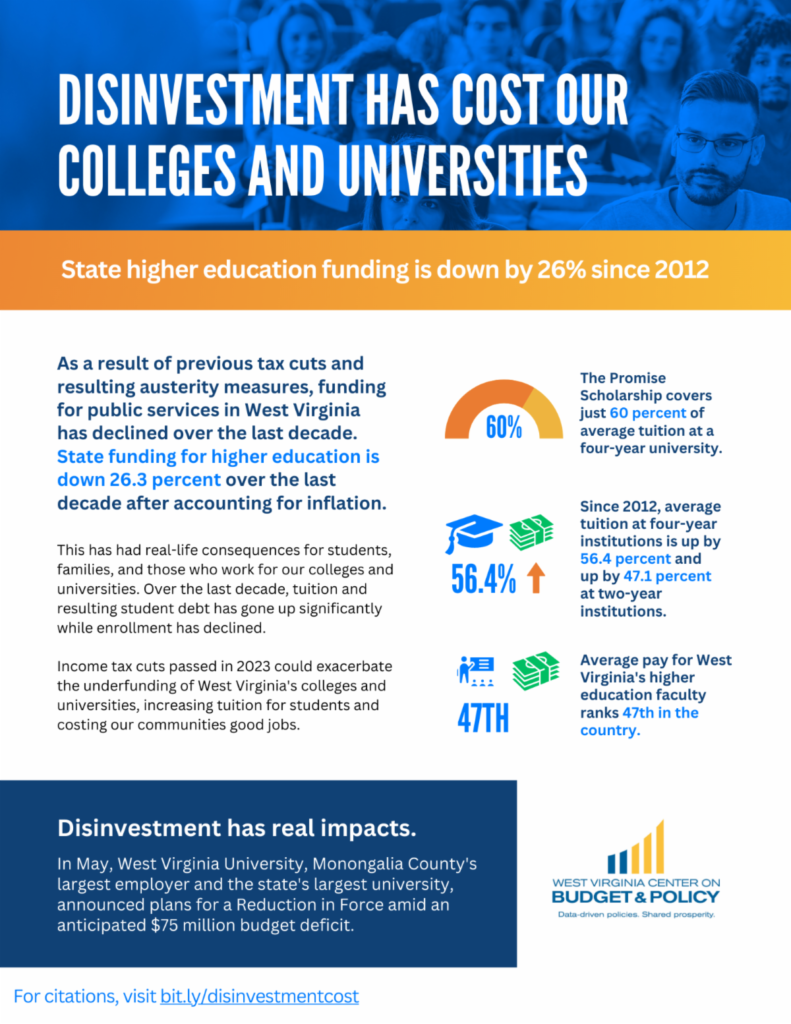
Last week, the US ended its formal recognition of the public health emergency caused by COVID-19. A recent article, including insight from WVCBP health and safety net policy analyst Rhonda Rogombe, explains how this development will impact eligibility and benefits pertaining to Medicaid, CHIP, SNAP, and more. Excerpt below:
During the Public Health Emergency, Medicaid and the Children’s Health Insurance Program (WVCHIP) suspended eligibility redetermination processes, allowing coverage to continue regardless of changes in circumstances.
However, Medicaid and WVCHIP continuous eligibility provision was separated from the Public Health declaration in December 2022. This signaled the beginning of the unrolling of beneficiaries from these programs.
“For the past three years, the Medicaid program has been growing,” said Rhonda Rogombe, health and safety net policy analyist for the West Virginia Center on Budget and Policy. “One because people were not losing coverage. And two, the pandemic triggered an economic downturn that like made a lot more people eligible for the program.”
When the upcoming unrolling of benefits was announced, advocates worried beneficiaries would lose their coverage because they may have moved over the pandemic.
“Most of the denials that we’re seeing on the national level, are for procedural reasons, which means that somebody didn’t determine their paperwork or fill it out correctly,” Rogombe said. “We don’t have specific state numbers yet. We still see them by the end of the month. But West Virginia follows natural trends when most people who are losing coverage are losing it because they didn’t complete and return that paperwork on time.”
Jaqueline Hale is the Virginia State Network Director at Unite Us. Unite Us West Virginia is a network of health and social service providers. The network is supported by an West Virginia-based Unite Us team focused on community engagement, network health and optimization and customer success. Hale also covers portions of southern West Virginia.
“The fact that people haven’t had to do this for three years, so one, that could be out of practice,” Hale said. “I know, I’m always struggling to find, you know, where’s the shot record? Where’s that last pay stub? Right? How do I download it from wherever if you even have that capacity to have access to an online payroll. So it’s just a heavy administrative burden and recognizing that a lot of our families, a lot of our individuals are dealing with multiple complex issues.”
Those who may have lost their benefits or health insurance coverage during the unrolling process can submit the required renewal forms for coverage redetermination through West Virginia People’s Access To Help (WVPATH).
For those who no longer qualify, West Virginia Navigator is a free, non-profit program that offers enrollment assistance for the Health Insurance Marketplace and is available to any West Virginia resident.
Read the full article.
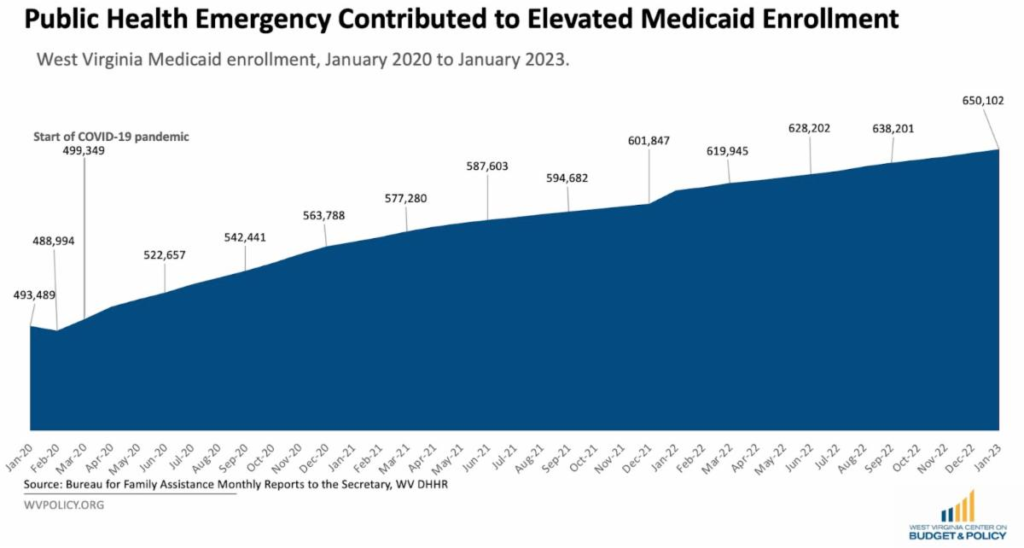
During the 2023 West Virginia legislative session, lawmakers passed significant tax cuts that will considerably reduce the revenue available to fund our state’s public programs and services.
Who will benefit the most from this year’s tax changes? What impact could they have on the quality of our state’s schools, libraries, health care system, and other public services and their ability to adequately serve our communities?
Join us to discuss, learn more, and have the opportunity to share how underfunding of public services has impacted you or your community.
WHEELING:
Please reach out to Seth DiStefano at sdistefano@wvpolicy.org with any questions!
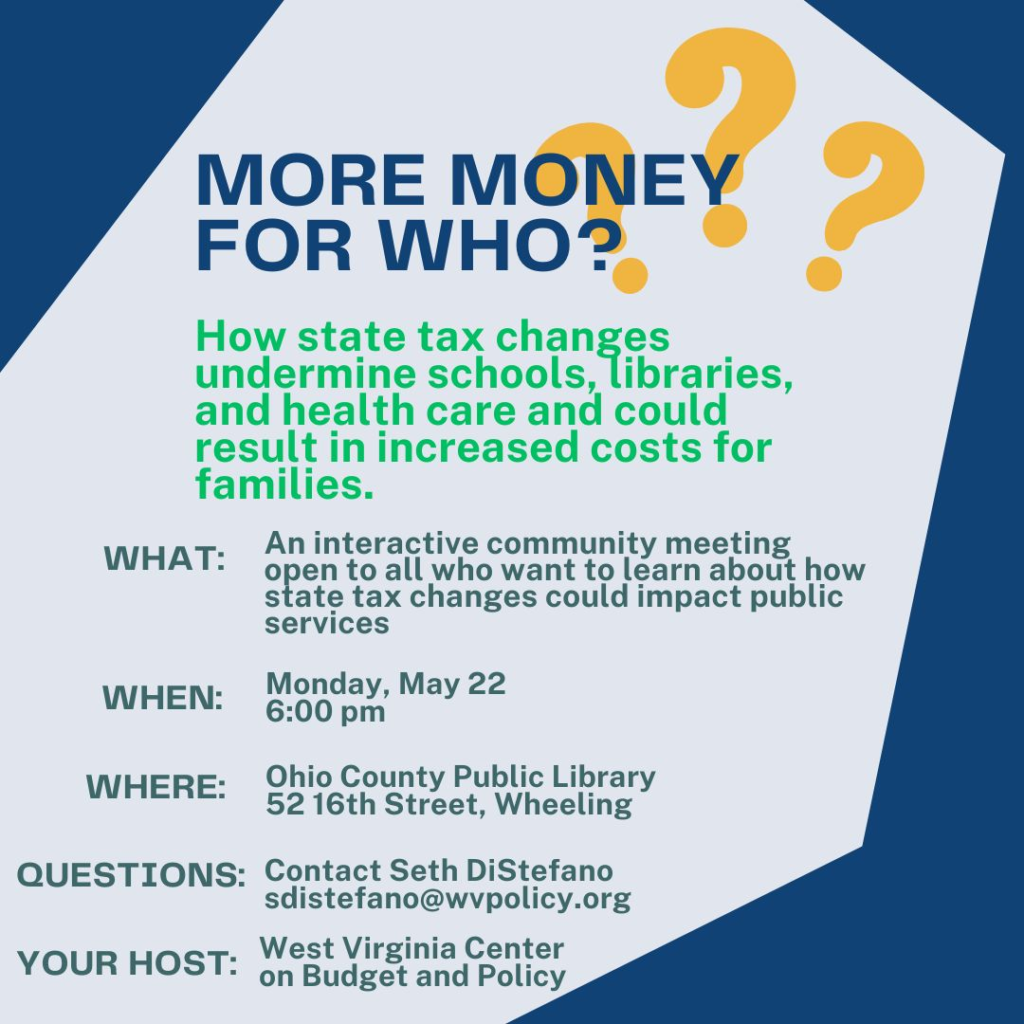
Dr. Jerica Wesley from Marshall University and Dr. Lauri Andress from Andress & Associates are seeking volunteers for a research study to learn more from West Virginia women and birthing people about their health care experiences. Currently there is little state-level data publicly available about the disparate experiences of birthing people across race. This study seeks to empower West Virginians through the sharing of stories and to gather qualitative data to inform advocates and policymakers.
Contact Dr. Wesley (jerica.wesley@marshall.edu /304-746-1912) or Dr. Andress (landress@bridgingthehealthgap.com /713-553-8192) to participate or for more details.
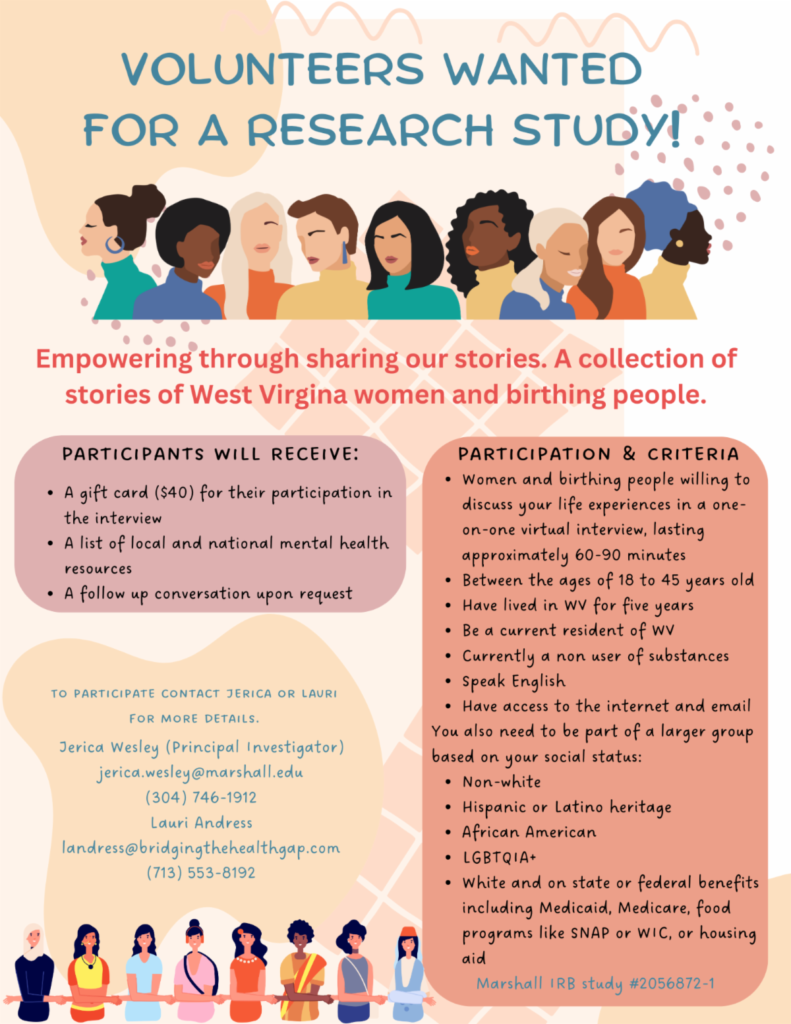
The WVCBP’s Elevating the Medicaid Enrollment Experience (EMEE) Voices Project seeks to collect stories from West Virginians who have struggled to access Medicaid across the state. Being conducted in partnership with West Virginians for Affordable Health Care, EMEE Voices will gather insight to inform which Medicaid barriers are most pertinent to West Virginians, specifically people of color.
Do you have a Medicaid experience to share? We’d appreciate your insight. Just fill out the contact form on this webpage and we’ll reach out to you soon. We look forward to learning from you!
You can watch WVCBP’s health policy analyst Rhonda Rogombé and West Virginians for Affordable Health Care’s Mariah Plante further break down the project and its goals in this FB Live.
